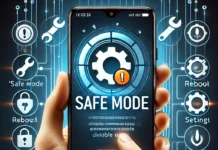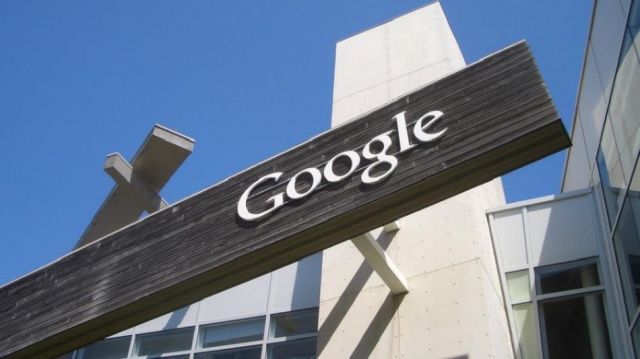Blockchain is a robust system for facilitating trustworthy data exchange between many entities. In eHealth realms, where patient privacy and data security are of the utmost importance, this presents a significant challenge.
However, without better healthcare system-wide collaboration in the monitoring of medical information and the capability to apply data analysis to medical data collected on a population scale, we will not be able to enhance the care provided. In a nutshell, blockchain can benefit digital health by facilitating the secure, consent-based sharing of data among widely disparate healthcare systems.
The healthcare industry faces significant difficulties in digitizing and exchanging medical records, as well as in tracking the distribution network and transportation of pharmaceuticals and other medical supplies.
5 Uncanny Charms Of Blockchain System To Know

Operational Transparency
Verifying the origin of medicinal supplies to ensure their legitimacy is a key concern in the healthcare industry and beyond.
By employing a blockchain-based method to track products from the moment of production and at each stage of the supply chain, businesses and consumers alike may have complete transparency and visibility into the products they purchase.
Particularly in emerging nations, where counterfeit pharmaceutical drugs account for thousands of annual deaths, this is a primary focus for the industry.
Because of the rise in popularity of remote health monitoring, it is also becoming more crucial for medical devices.
Patient-Centric Records
Data silos are a challenge for healthcare systems worldwide and across regions, as they only present a partial picture of a patient’s medical history to both the patient and the healthcare provider.
Research from Johns Hopkins University released in 2016 found that medical separation from poor coordination care (such as action plans not being executed as intended or mistakes of exclusion in patient records) was the third largest cause of death in the United States.
A possible answer to this issue is the development of a blockchain-based platform for health records that will be integrated with preexisting electronic health software and serve as a consolidated, unified view of a patient’s medical history.
Vitally, the blockchain does not retain any personally identifiable information about patients; instead, it assigns a unique hash function—a short sequence of numbers and characters that can be utilized to validate the integrity of the underlying data—to each new record that is added to the ledger.
Each hash function is one-of-a-kind and should only be deciphered with the permission of the data’s owner, in this instance the patient.
Smart Contracts For Errorless SCM System
Blockchain-based systems are provided by companies like Chronicled and Curisium, allowing pharmaceutical and medical device manufacturers, wholesalers, insurers, and healthcare providers to verify one another’s identities, record contract terms, and keep tabs on the sale and delivery of medical supplies and services, as well as the related financial settlements.
Beyond just supply chain management, this kind of setting also paves the way for healthcare trading partners and health insurers to work under totally digital and sometimes automated contract conditions.
Disputes over financial chargeback allegations for prescription drugs and other items can be greatly reduced if manufacturers, distributors, and healthcare organizations all use the same digital contracts that are recorded on a blockchain database.
Chronicles states that due to the fluid nature of pricing systems, these industries process over a million chargeback claims annually, of which over 5% are contested and require time-consuming human settlement.
However, healthcare sectors must also think about linking with international trading bot systems like oil profit so that they can promote secure and easy contactless payments.
Medical Staff Verification
Blockchain technology has the potential to record the experience of medical experts in much the same way that the provenance of a medical commodity can be tracked, with reputable medical centers and healthcare organizations logging the credentials of their employees.
ProCredEx, based in the United States, has created a medical credentials authentication mechanism that uses the R3 Corda blockchain technology.
Here are some of the main advantages of the blockchain system:
- Better and more rapid healthcare organization credentialing for employment purposes
- This is a chance for hospitals, health plans, and clinics to make money off of information on their employees’ credentials.
- For organizations that subcontract locum tenens or in new forms of virtual health care delivery, transparency and confidence for partners in terms of medical staff experience are essential.
IoT For Remote Monitoring

The usage of remote sensing technologies, in which a wide variety of sensors detecting patients’ vital signs are being used to actually give healthcare providers more visibility into patients’ health and enable more preventative and proactive care, is one of the most prominent developments in digital health.
Many intriguing remote management use cases were discussed in our prior publications on 5G and edge technology in digital health.
By using a cryptographic hash function, only authorized users can access private information recorded on the blockchain
When it comes to healthcare IoT, blockchain has the potential to improve security, but this field is still in its infancy, and it isn’t yet known if this technology is the best option.
It’s worthwhile for digital health organizations to investigate blockchain as part of a larger end-to-end security strategy for protecting remote monitoring devices.
The Bottom Line
Distinguishing between legitimate blockchain-based applications and marketing jargon is one of the industry’s major issues. The limited number of large-scale, production-ready applications of blockchain technology beyond Bitcoin makes this challenging.
Blockchain’s most revolutionary promise is that it eliminates the need for a centralized controlling authority and instead it across all attendees within the blockchain ecosystem. This is accomplished through a cautiously balanced mix of very innovative cryptography and in-built rewards (in the version of Bitcoin or other crypto-tokens).
Therefore, in theory, it can do away with the requirement for a third party to digitally, securely, and impartially manage the transactions between two parties that do not know or trust each other.
Meanwhile, most blockchain-based systems are now supplied like any other software-as-a-service, meaning the adoption of these technologies in the healthcare sector no longer necessitates in-depth first-hand experience with the technology.
So it’s a win-win situation for both the consumer and blockchain developers when it comes to the practical implementation of blockchain and crypto in the healthcare sector.

















